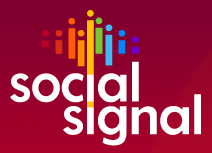- Home
- Blogs
- Alexandra Samuel's blog
- 6 essential social media tools for your business or organization
6 essential social media tools for your business or organization
- 30 March, 2009
- 0 comments

If you're asking how social media can help your business or organization, you should start by answering four questions that will give you a strategic framework for decision-making.
But if you're itching to get a handle on this social media thing, and want to open your eyes and ears, there are a few tools we recommend as assets to virtually any organization. I've listed these in the order I'd recommend adopting each one.
- iGoogle is your customized Google home page. Make it your browser's default page, so it loads whenever you open a new browser window, and add subscriptions (to RSS feeds) that will let you know whenever someone blogs or tweets about you, your products/services, or your industry. For details, read the blog post on RSS that includes instructions on how to create a media monitoring site.
- Technorati and Google Blogs search blogs and tell you what people are writing about. Search on your name, your business's name (and any common misspellings or abbreviations), your competitors' names, and keywords that people use when they are talking about the kind of problem you solve or market you serve. (You can do the same thing on Google News in order to track media mentions.) Then subscribe to the RSS feed for your search results, using iGoogle. Just try not to get too obsessed with your own blog's Technorati ranking.
- Twitter Search lets you track what people are saying on Twitter the way you'd track what people are saying in blogs. Use iGoogle to subscribe to the RSS feed for your Twitter searches.
- Google's hosted applications offers lots of free web services for your business, including free e-mail hosting. If you like Gmail's great interface and e-mail tools (I sure do!) you can use Gmail to host your company's own e-mail (we use it for our @socialsignal.com addresses). Using Google to host your e-mail means you can use my approach to keeping your inbox at zero (CRUCIAL to staying on top of your e-mail!), and importing your customer or contact list into Google's contacts makes it easy to find those contacts on any new social network you join (because most social networks have a "find friends" feature that will search through your Google contacts for anyone who's already on that network). You can use Gmail to host your e-mail and still use Outlook, Apple Mail or whichever piece of software you prefer to read and send e-mail.
- Wordpress is my favorite platform for setting up a blog -- or even an entire website. Use the hosted version to quickly and easily set up a blog. Spend the extra $20 to get a custom URL (e.g. www.yourbusinessname.com); if you've already bought your domain name you can point it to your Wordpress blog (or set up the subdomain blog.yourbusinessname.com and point THAT to Wordpress). If your blog takes off, or you want to have more options in how to customize and enhance it, you can easily move it to an independent host and have more customization options.
- Google Reader can help you keep track of different blogs in your field so that you can find stuff to write about on your own blog. It's much more efficient to read all your blogs and searches in one place, rather than hopping around from web site to web site in hope of finding something blog-worthy.
Work Smarter with Evernote

Get more out of Evernote with Alexandra Samuel's great new ebook, the first in the Harvard Business Press Work Smarter with Social Media series!



